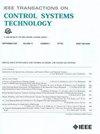Online End-to-End Learning-Based Predictive Control for Microgrid Energy Management
IF 4.9
2区 计算机科学
Q1 AUTOMATION & CONTROL SYSTEMS
引用次数: 0
Abstract
This article proposes an innovative Online Learning (OL) algorithm designed for efficient microgrid energy management, integrating Recurrent Neural Networks (RNNs), and Model Predictive Control (MPC) in an End-to-End (E2E) learning-based control architecture. The algorithm leverages the RNN capabilities to predict uncertain and possibly evolving profiles of electricity price, load demand, and renewable generation. These are then exploited in an integrated MPC optimization problem to minimize the overall microgrid electricity consumption cost while guaranteeing operation constraints. The proposed methodology incorporates a specifically designed online version of the Stochastic Weight Averaging (O-SWA) and Experience Replay (ER) methods to enhance OL capabilities, ensuring more robust and adaptive learning in real-time scenarios. In addition, to address the challenge of model uncertainty, a task-based loss approach is proposed by integrating the MPC optimization as a differentiable optimization layer within the Neural Network (NN), allowing the OL architecture to jointly optimize prediction and control performance. The performance of the proposed methodology is evaluated through extensive simulation results, showcasing its Transfer Learning (TL) capabilities across different microgrid sites, which are crucial for deployment in real microgrids. We finally show that our OL algorithm can be used to estimate the prediction uncertainty of the unknown profiles.基于在线端到端学习的微电网能量管理预测控制
本文提出了一种创新的在线学习(OL)算法,用于有效的微电网能量管理,将递归神经网络(rnn)和模型预测控制(MPC)集成在端到端(E2E)基于学习的控制体系结构中。该算法利用RNN的能力来预测电价、负荷需求和可再生能源发电的不确定和可能的发展概况。然后在集成的MPC优化问题中利用这些问题,在保证运行约束的同时最小化微电网的总体电力消耗成本。所提出的方法结合了专门设计的随机加权平均(O-SWA)和经验回放(ER)方法的在线版本,以增强OL能力,确保在实时场景中更具鲁棒性和适应性的学习。此外,为了解决模型不确定性的挑战,提出了一种基于任务的损失方法,通过将MPC优化集成为神经网络(NN)中的可微优化层,使OL体系结构能够共同优化预测和控制性能。通过广泛的仿真结果评估了所提出方法的性能,展示了其跨不同微电网站点的迁移学习(TL)能力,这对于在实际微电网中的部署至关重要。最后,我们证明了我们的OL算法可以用来估计未知剖面的预测不确定性。
本文章由计算机程序翻译,如有差异,请以英文原文为准。
求助全文
约1分钟内获得全文
求助全文
来源期刊

IEEE Transactions on Control Systems Technology
工程技术-工程:电子与电气
CiteScore
10.70
自引率
2.10%
发文量
218
审稿时长
6.7 months
期刊介绍:
The IEEE Transactions on Control Systems Technology publishes high quality technical papers on technological advances in control engineering. The word technology is from the Greek technologia. The modern meaning is a scientific method to achieve a practical purpose. Control Systems Technology includes all aspects of control engineering needed to implement practical control systems, from analysis and design, through simulation and hardware. A primary purpose of the IEEE Transactions on Control Systems Technology is to have an archival publication which will bridge the gap between theory and practice. Papers are published in the IEEE Transactions on Control System Technology which disclose significant new knowledge, exploratory developments, or practical applications in all aspects of technology needed to implement control systems, from analysis and design through simulation, and hardware.
 求助内容:
求助内容: 应助结果提醒方式:
应助结果提醒方式:


